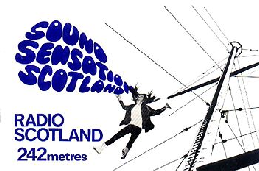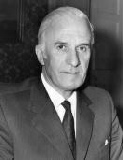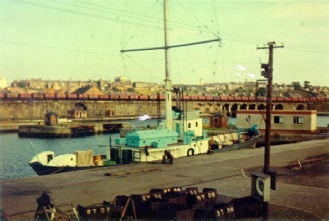© 2014-


Radio Scotland - History (3)
However, the station's signal in Scotland was weak and problems were encountered with the Irish Customs authorities over tendering arrangements. Complaints were also received that Radio Scotland and Ireland/Radio 242 was causing interference to lighthouse communications in Belfast Lough and to licensed broadcasting services in Ireland. So by the end of April 1967 after just three weeks on the air from its Northern Irish anchorage transmissions from the Comet were terminated. Arrangements were made at the beginning of May to tow the ship back to an anchorage off Fifeness on the east coast of Scotland. However, instead of the planned five days the towing operation took over three weeks due to delays caused by gales and bad weathe r.
r.
Staffing problems were encountered by Radio Scotland at the end of May 1967 shortly after the station had returned to the air from its east coast anchorage putting a further strain on the much troubled station. All the time off the air between March and 8th May 1967 had cost Radio Scotland dearly in lost advertising revenue. On top of that the station had incurred the cost of towing the Comet first to Belfast Lough and then back to the east coast of Scotland. At this time financial projections by the station's accountants showed that in order to recoup initial investment and cover the annual running costs Radio Scotland would need to remain on the air, in a revenue earning situation, for at least another nine months.
The Marin e etc. Broadcasting (Offences) Act received the Royal Assent on 14th July 1967 and Postmaster General Edward Short announced that its provisions would come into effect one month later, on 15th August 1967.
e etc. Broadcasting (Offences) Act received the Royal Assent on 14th July 1967 and Postmaster General Edward Short announced that its provisions would come into effect one month later, on 15th August 1967.
Radio Scotland closed at midnight on 14th August 1967. The final day's programmes were pre-
The station's final hour contained messages and tributes from former staff and from Managing Director Tommy Shields who said it was the saddest day of his life. Radio Scotland announced that during the nineteen months it had been on the air the station had lost £100,000, due largely to the cost of towing the Comet from the east to the west coast and back again, as well as the general lack of advertising revenue as a result of poor signal quality and frequent periods off the air while the ship was being repositioned.
After spending three days at anchor following Radio Scotland's closure on 14th August 1967 the Comet was put up for sale in Dunbar Harbour. With no purchasers coming forward she was towed to Methil Harbour, Fife, Scotland where she arrived on 18th September 1967. While she was in Methil Harbour all the radio equipment was removed.
at anchor following Radio Scotland's closure on 14th August 1967 the Comet was put up for sale in Dunbar Harbour. With no purchasers coming forward she was towed to Methil Harbour, Fife, Scotland where she arrived on 18th September 1967. While she was in Methil Harbour all the radio equipment was removed.
About six months after the station closed Managing Director, Tommy Shields, died as the result of a kidney complaint, at the age of 49.


Click on picture to enlarge
Radio Scotland and Ireland and Radio 242 ID announcements

Edinburgh Weekly



Postmaster General, Edward Short
Radio Scotland’s closedown, Tommy Shields August 14th 1967

Comet in Methil Harbour, September 1967
For more about Radio Scotland visit
In the Special Exhibitions Gallery on the Ground Floor

History
Key Dates
Ship and Location
Technical
Staff
Programmes






Treasure Chest





Back to Britain Gallery


Back to Radio Scotland
